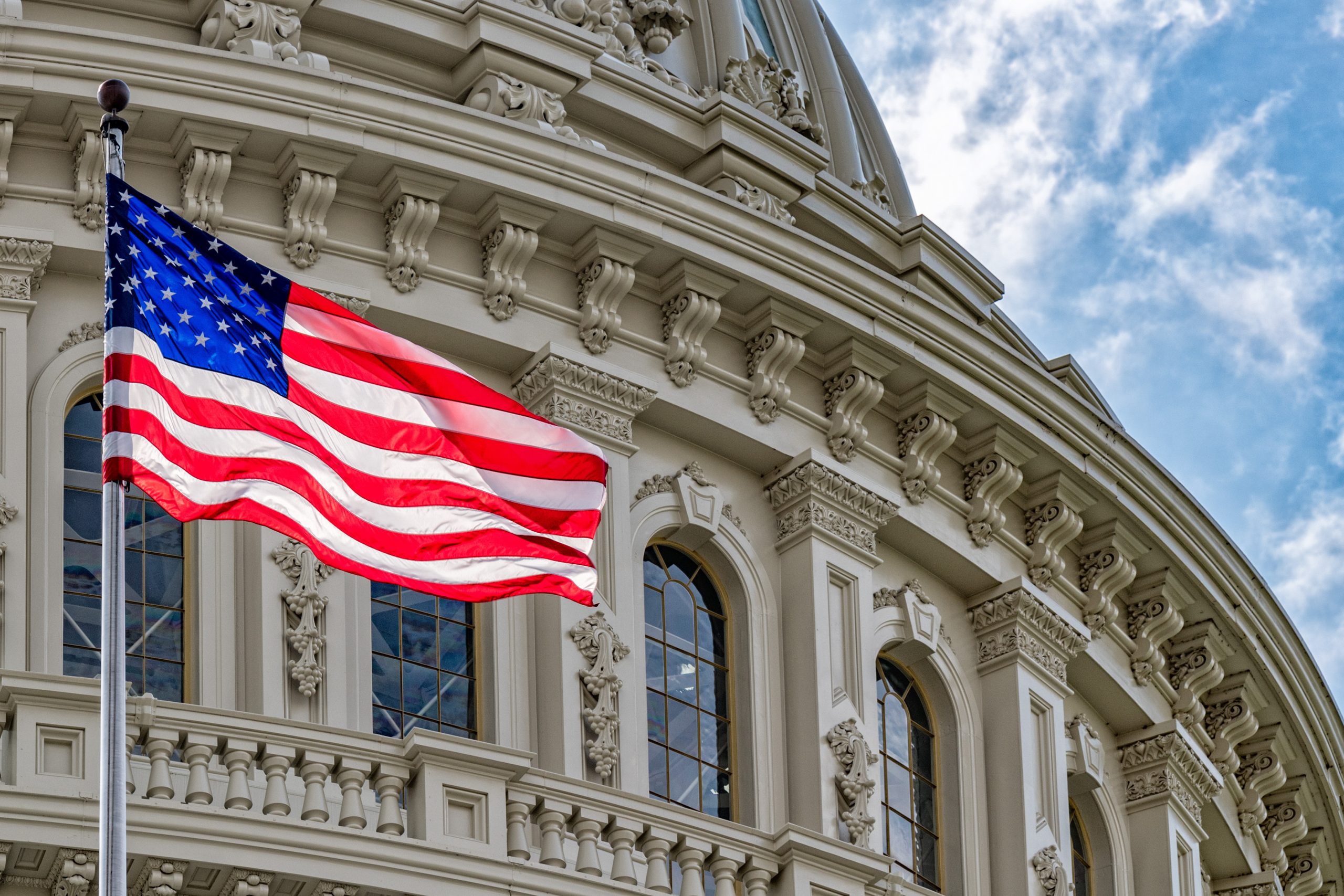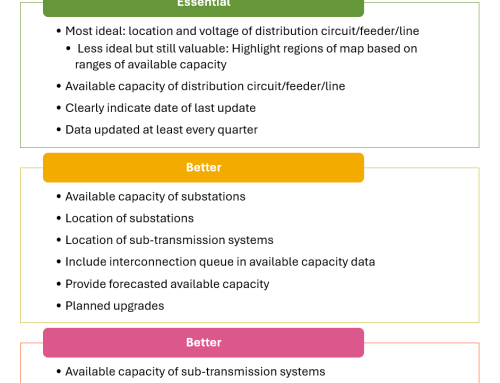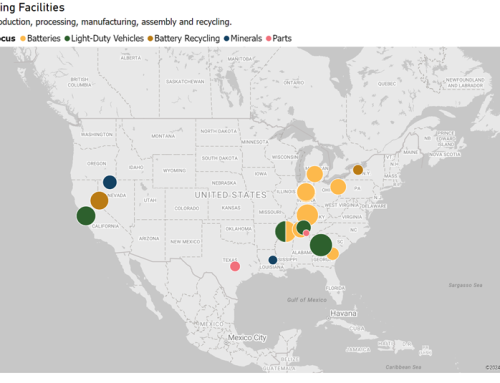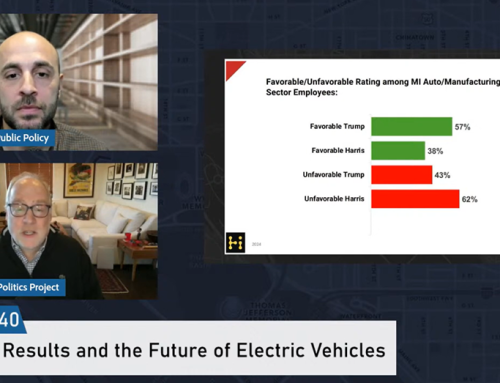
Photo by Andrea Izzotti on Shutterstock
Many State legislatures have reconvened for the 2023 legislative session. Here are some legislative trends we have seen in the past month.
Let’s start with the not so good news. A few states have kicked off their legislative sessions by introducing anti-EV measures, including Wyoming and Virginia. Namely, Wyoming’s Senate Joint Resolution 0004 moves to phase out the sale of new electric vehicles in the state by 2035, though it is unlikely to hold up. Introduced by Jim Anderson and five other Republican co-sponsors, the bill cites oil and gas production being long one of Wyoming’s “proudest and valued industries, creating countless jobs and contributing to the state’s revenue streams.” Anderson told the Washington Post in a phone interview recently that the bill was written in response to California’s clean cars regulations, with the hopes of creating buzz about continuing the choice to purchase new gas-powered vehicles.
Virginia is also pushing back on California’s clean cars rule, which we have covered previously. In 2021, the state’s legislature voted on a trigger law that would bind the state to California’s vehicle emissions standards. Introduced by Delegate Wilt, Virginia’s House Bill 1378 seeks to repeal those standards, citing burdensome cost demands and grid strain. The bill passed in the House on January 25th, though appears unlikely to pass the state Senate.
There has also been some legislative movement relating to direct sales. Virginia’s House Bill 2468 moves to streamline the process for direct sales manufacturers to operate in Virginia, which has garnered support from Tesla. The company has asked supporters to email legislators in support of the bill. Meanwhile, Mississippi’s House Bill 401 would prevent automakers from opening physical stores and require them to operate through independent dealerships, a step backwards in the fight for direct sales.
Lastly, we have seen some promising steps forward on the medium- and heavy- duty electric vehicle side. Maryland’s recently introduced House Bill 230 would require the Department of the Environment to adopt rules by December 1st, 2023 that would establish requirements for the sale of new zero-emission medium- and heavy-duty vehicles, joining a growing cohort of states following in California’s footsteps adopting clean trucks regulations. Maryland’s House Bill 550 also offers incentives for medium-and heavy-duty vehicles by offering businesses that switch from gas-powered trucks to electric trucks grants that cover 100 percent of the cost differential. On the other coast, legislators in Washington introduced House Bill 1368, which requires school districts to purchase zero emission school buses beginning September 2035 and establishes a zero-emission school bus grant program for the replacement of school buses powered by fossil fuels with zero emission school buses. Eligible recipients for the grant program include school districts, charter schools, and state-tribal education compact schools, though it is unclear if any funding will be appropriated for this program.
There were other developments in Illinois, Indiana, Maryland, Minnesota, Mississippi, New York, Pennsylvania, Virginia, Washington, West Virginia, and Wyoming. See the full list below, or dive in deeper on the State Policy Dashboard.
January legislative update:
- Illinois: SB40. The “Electric Vehicle Charging Act” requires new residential construction to include electric vehicle capable parking spaces or installed electric vehicle supply equipment.
- Indiana: SB241. Requires the BMV to submit a report annually to the Indiana utility regulatory commission that includes information regarding the number of electric vehicles registered by county
- Maryland: HB123. Authorizing certain plug-in electric drive vehicles for which a permit has been issued by the Motor Vehicle Administration to use high occupancy vehicle (HOV) lanes regardless of the number of passengers in the vehicles
- Maryland: HB230. Requires the Department of the Environment to adopt regulations on or before December 1, 2023, establishing requirements for the sale of new zero-emission medium- and heavy-duty vehicles in the State
- Maryland: HB7. Altering the Electric Vehicle Recharging Equipment Rebate Program by extending the duration of the Program through fiscal year 2027, increasing the total amount of rebates issued annually under the Program to $2,000,000.
- Minnesota: HF413. Establishes requirement for state fleet to purchase EVs unless total cost of ownership exceeds 110 percent of comparative non-EV, requires EV training for motor vehicle dealer employees, requires utilities to file plans with Public Utilities Commission to promote EVs, establishes $20 million rebate program offering $2,500 for new EV and $500 for used EV, and establishes $4 million grant program for automobile dealers for certification allowing electric vehicle sales.
- Mississippi: HB401. Bans direct sales of EVs
- New York: S749. Requires at least one electric charging station for every one hundred fifty thousand New York state residents
- New York: S1736. Requires electric vehicle charging stations and level 2 electric vehicle capable parking spaces at certain residential and commercial buildings.
- New York: S489. Requires NYSERDA to develop a comprehensive electric vehicle fast charging station implementation plan
- New York: S110. Requires commercial garages containing electric vehicle charging stations to ensure public access to such charging stations
- New York: S487. Directs the New York State Department of Transportation, in conjunction with the New York State Energy Research and Development Authority and the New York Power Authority, to promulgate rules and regulations for the standardization of public charging stations for electric vehicles.
- Pennsylvania: SB157. Establishes a Residential Electric Vehicle Charging Station Tax Credit
- Virginia: HB1790. Creates a tax credit for taxable years 2023 through 2027 for expenses incurred in connection with installing qualified electric vehicle charging equipment in the Commonwealth in an amount equal to 30 percent of the cost of purchasing and installing such equipment during the taxable year.
- Virginia: SB1312. Provides that any locality may by ordinance require electric vehicle charging stations as part of subdivision or site plan approval for a development containing commercial, industrial, or multifamily residential uses with a density of seven residential dwelling units per acre or greater.
- Virginia: HB2468. Streamlines process for direct sales manufacturers to operate in Virginia
- Virginia: HB1378. Repeals the requirement that the State Air Pollution Control Board implement a low-emissions and zero-emissions vehicle program for motor vehicles with a model year of 2025 and later. The bill prohibits the Board from adopting or enforcing any model year standards related to control of emissions from new motor vehicles or new motor vehicle engines
- Virginia: HB1588. Creates the Electric Vehicle Rural Infrastructure Program and Fund to assist private developers with non-utility costs associated with the installation of electric vehicle charging stations. The bill provides that a private developer is eligible to receive grants of 70 percent of such non-utility costs for electric vehicle charging stations installed in a city or county that meets the criteria of a distressed locality as provided in the bill and caps the total amount of grants awarded in any fiscal year at $25 million.
- Virginia: HB1766. Requires the Board of Housing and Community Development to promulgate regulations for electric vehicle charging infrastructure standards for multifamily residential housing construction projects consisting of more than 25 residential dwelling units. The standards shall require a developer of such multifamily residential housing construction projects to ensure that at least 25 percent of the available parking spaces are electric vehicle charging ready during the design and construction process.
- Washington: HB1368. Requires all school buses purchased in the state to be zero-emissions by 2035 and establishes an account to fund the purchase of zero emission school buses.
- West Virginia: SB212. Establishing rebate for registration fees for plug-in hybrid vehicles
- Wyoming: SJ0004. A bill that seeks to phase out new electric vehicle sales by 2035


